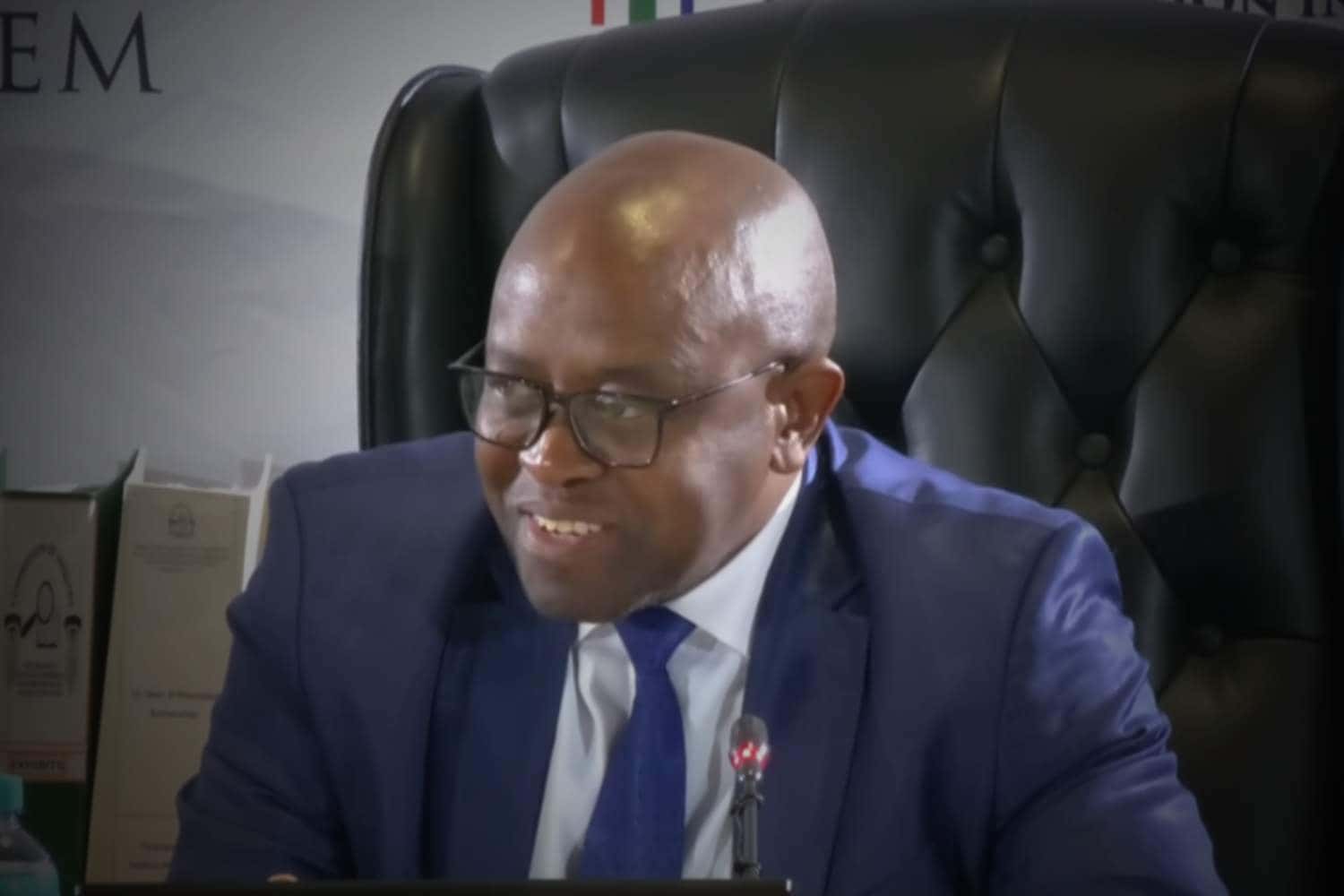The Madlanga Commission resumed its public hearings on Monday morning, focusing on testimony from detectives investigating criminal cartels in Gauteng.
The witnesses, identified only as Witnesses A, B, and C, are testifying from undisclosed safe houses, with their voices broadcast live but their identities concealed for safety reasons.
According to IOL, the decision to hold part of the proceedings remotely was made due to the sensitive nature of the evidence being presented. Commission spokesperson Jeremy Michaels confirmed that while the witnesses would not appear on camera, their testimony would be streamed live from the Brigitte Mabandla Justice College, where members of the public and media are allowed to observe.
“The transcript of the witnesses’ testimony will be made publicly available after the witnesses have finished testifying,” Michaels said.
Advocate Mahlape Sello, one of the commission’s evidence leaders, confirmed that the witnesses are officers attached to specialist units investigating organised crime and high-level cartels in Gauteng.
Witness A, whose evidence is being led by Advocate Lee Segeels-Ncube, testified that he is a detective from the Organised Crime Unit and previously served on the Trio Task Team in Soweto, where he worked on the murder investigation of Vereeniging engineer Armand Swart.
The hearings this week will continue until Wednesday and are expected to shed light on claims of political interference and police corruption linked to criminal syndicates.
Chief evidence leader Advocate Matthew Chaskalson SC said the sensitive nature of the testimony required temporary confidentiality to protect ongoing investigations.
“Public disclosure at this stage could compromise police investigations that are already at an advanced stage,” he explained.
Justice Mbuyiseli Madlanga, who chairs the commission, told attendees that this week’s testimony marks a critical stage in uncovering the links between organised crime and the country’s law enforcement agencies.
“This is the first time those implicated will hear this information,” he said during Thursday’s adjournment before the session resumed on Monday.
The commission temporarily closed its proceedings last week to allow detectives to provide in-camera evidence.
Media organisations, which initially opposed the closed-door decision, withdrew their objections after being assured that secrecy was intended solely to protect active investigations rather than shield witnesses.
Michaels reiterated that the hearings would return to open sessions as soon as it is safe to do so.
“Once the ongoing police investigations reach a stage where disclosure will not compromise their progress, the testimonies given today will be made public,” he said.
The Madlanga Commission — formally known as the Judicial Commission into Corruption and Political Interference in the Criminal Justice System — was established to investigate claims that criminal cartels have infiltrated policing structures and that some law enforcement officials have been complicit in protecting these networks.
The hearings come amid growing concern about the influence of organised crime within law enforcement, with previous witnesses describing intimidation, internal sabotage, and manipulation of investigations.
The commission’s findings are expected to be made public in 2026.
